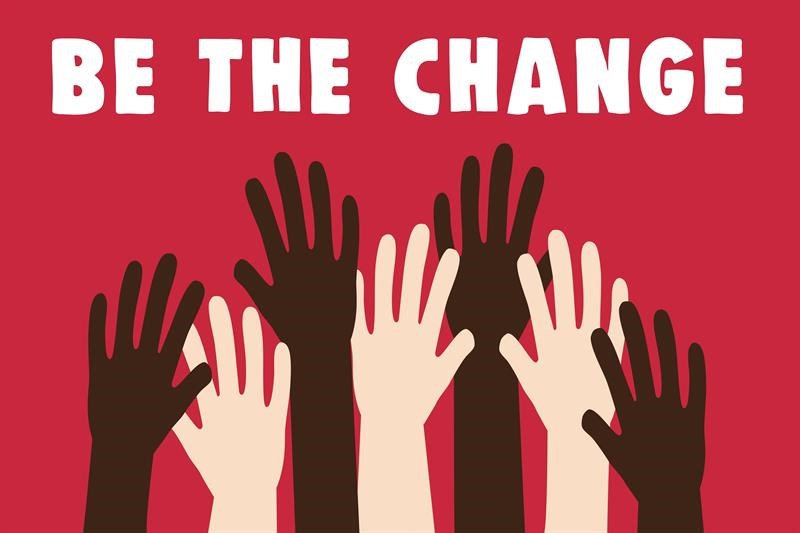We need to talk about racism
Published: 17/02/2021
Fathia Jeilani is a British Somalian dental nurse. Here, she talks about the challenges she has faced and how we can all work together to effect positive change
I’m a nurturer at heart, which is probably why I grew to love the profession as I do. Throughout my life, I have always found that helping people is second nature to me. I also think that my childhood memories of visiting the dentist were always pleasant, which contributed to me developing an interest in becoming a dental nurse. I grew up in North London with my parents and six siblings. Having a big family unit gave me a lot of security and stability and helped me form a strong sense of identity. As the eldest, I got a lot of experience taking care of others and understanding people’s needs. Growing up in a very multicultural area also allowed me to understand and appreciate people from different backgrounds and all walks of life.
I am a proud Muslim. My religion definitely plays a huge role in my life, forming my morals and values, whilst also giving me a certain perspective of the world. My religion mainly revolves around five concepts – faith, prayer, giving to charity, fasting and going on at least one pilgrimage in a lifetime.
British culture has also had a big impact in my life, in terms of schooling, having friends from different backgrounds and religions, and seeing the contrast of living in a city, compared to my parents who were raised in third world countries.
I have perhaps always been subconsciously aware that people of colour face discrimination – albeit sometimes unintentionally. I once overheard two of my colleagues refer to me as a ‘negro’ and my initial response was shock, but I was also hurt. However, when I considered confronting them about their choice of language, I was hesitant. I realised I was worried that there may be repercussions raising this as a complaint, and it could jeopardise my job. I felt that it would potentially risk me not being taken seriously.
This incident made me realise that, to stop these instances of racism, I needed to be in a more prominent position where I could create more effective change. It also taught me that it is my responsibility to inspire and lead black and minority people like me, so that we work towards shifting attitudes to a place where racism is never acceptable by anyone.
Everyone in the workplace should be informed of the consequences of racism and be briefed on how the company tackles it. Everyone needs to be aware that they can speak up whenever they feel someone is being racist or prejudiced and victims of racism must feel empowered and supported. If a colleague tells you they have been racially abused, then you must let them know this is unacceptable nor tolerated. Most importantly, you should encourage them to report it so companies can be held accountable if they are failing to address racism in the workplace.
Racism comes in many different guises. Some forms of racism can be direct and easy to spot – an example of this would be verbal abuse, such as a racial slur. Other forms can be subliminal and, therefore, more challenging to confront. An example of this is someone hiding belongings or making derogatory jokes or statements about the smell of a particular type of food in the break room. Then, there is in institutional racism and this is the hardest to fight. This affects schooling, hospital access, social services and, most notably of late, the police and justice systems among others.
It is the responsibility of us all to become educated and aware of racism. A lot of websites have published some great reading lists of books that educate and offer insight into racism today – these are easy to search online. Stay informed with global affairs but be aware of how the news is being presented and the perspective of the channel – not all news channels are impartial. Be aware of historical events, as well as successes that been erased by traditional history, such as inventors, scientists, musicians and other notable people of colour who laid the groundwork for those who came after.
I believe it should be mandatory for someone to lose their job if it is proven that they have been racist. Companies should send out a very clear message that racism in any shape is not tolerated in the workplace or in the company as a whole. Anything less than this suggests that a company values profits and workplace politics more than my right to work free from the fear of abuse.
You are never alone in a situation. There is always someone who will listen to you and be able to advise. In addition, there will be others who have gone through the same or similar experiences, who will also be able to help you. I do look back and wish I stood up for myself or had done something. However, I have also learnt a lot and now am able to shed light on to potentially help others.
Racism has become a prominent issue of late and I view this as an ideal opportunity to speak about my experience and the ways it has affected me – in the short term and long term. More people are speaking up about their experiences and I’m no longer alone, so I feel a stronger sense of unity. However, I want to see a time where racism does not exist in the workplace at all due to a shift in the cultural mindset and stricter regulations.
From the moment I applied for a job to securing it, I didn’t once stop to think I would be judged by my skin colour. It was only until I experienced direct racism, that I reflected on how I was being seen by others in the workplace. Going forward, we need to ensure discrimination and racist behaviour does not happen within dentistry. The GDC should have a clear ‘zero tolerance’ policy, so that it is clear racism is not accepted by the profession. In fact, it violates the very role we are hired to do and that is to help others. There need to be strict consequences to protect those who are victims and remove those with such a mindset from our profession.
| How to take action If are concerned/aware of a colleague or friend is facing racial bullying, racism, discrimination at work or outside work, there are ways you can help them by:
|
Author: Eloise Meldrum


.jpg?width=300&height=200&scale=canvas)





.jpg?width=150&height=100&scale=canvas)




